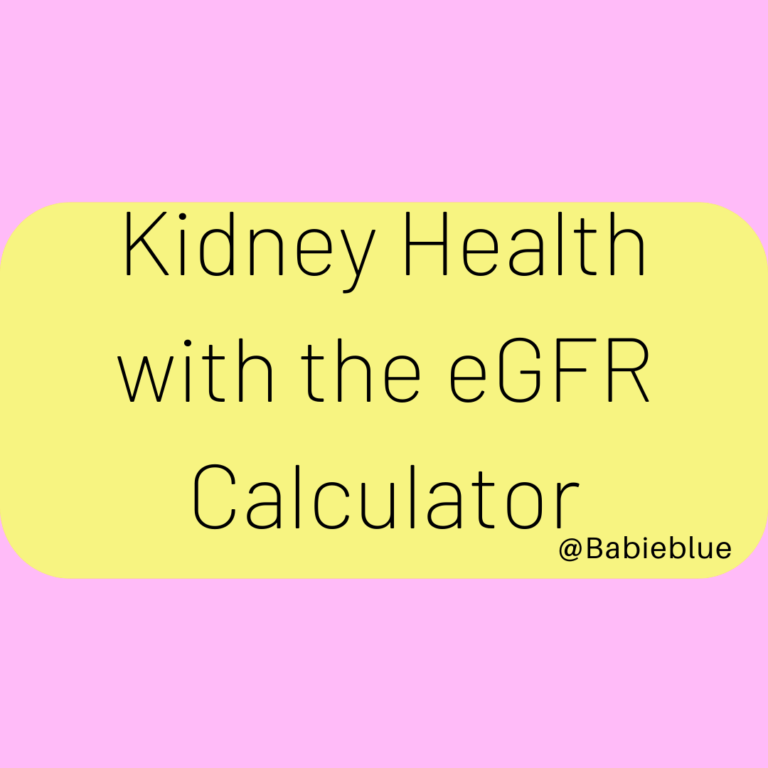eGFR Calculator
Introduction:
Kidney health is paramount for overall well-being, and monitoring it is crucial to prevent and manage kidney disease. One valuable tool in this endeavor is the Estimated Glomerular Filtration Rate (eGFR) calculator. By estimating kidney function based on serum creatinine levels, age, gender, and race, this calculator plays a pivotal role in assessing kidney health and diagnosing potential issues. In this guide, we'll explore eGFR, its significance, and how to use this essential tool.
What Is eGFR?
eGFR, or Estimated Glomerular Filtration Rate, is a measurement that reflects how well your kidneys are functioning. It is determined by a mathematical formula that takes into account several factors, including serum creatinine levels, age, gender, and race. The result is expressed in milliliters per minute per 1.73 square meters (mL/min/1.73 m²) and provides an estimate of how efficiently your kidneys are filtering waste and excess fluids from your blood.
Calculating eGFR:
Factors Considered To estimate eGFR accurately, the following factors are considered:
- Serum Creatinine Levels: Creatinine is a waste product produced by muscles and removed by the kidneys. High levels of serum creatinine in the blood can indicate impaired kidney function.
- Age: Kidney function naturally decreases with age. The eGFR formula accounts for this, with lower eGFR values expected in older individuals.
- Gender: Men and women may have slightly different eGFR values due to variations in muscle mass.
- Race: Certain racial groups may have different average eGFR values, primarily due to genetic and physiological factors.
Significance of eGFR:
The eGFR calculator serves several crucial purposes in managing kidney health:
- Early Detection of Kidney Disease: By assessing eGFR, healthcare providers can identify potential kidney problems in their early stages, allowing for prompt intervention and treatment.
- Monitoring Chronic Kidney Disease (CKD): For individuals with CKD, eGFR provides a reliable measure of disease progression and helps healthcare providers adjust treatment plans accordingly.
- Medication Dosage Adjustment: Many medications are eliminated from the body through the kidneys. Knowing a patient's eGFR helps healthcare providers determine appropriate medication dosages to prevent side effects.
- Kidney Transplant Evaluation: eGFR is a critical factor in assessing a patient's suitability for kidney transplantation, as it reflects their overall kidney function.
Using the eGFR Calculator:
The eGFR calculator is typically used by healthcare providers, but individuals can also calculate an estimated value using online tools or apps. To use the calculator effectively, you will need your serum creatinine level, age, gender, and race information. The resulting eGFR value can then be interpreted in the context of your overall health.
Conclusion:
Maintaining healthy kidneys is essential for a vibrant and active life. The eGFR calculator, which estimates kidney function based on serum creatinine levels, age, gender, and race, is a valuable tool for assessing kidney health and diagnosing kidney disease. Regular monitoring of eGFR, along with proper medical guidance, can contribute to early detection and effective management of kidney-related issues, ultimately supporting your well-being and quality of life.
